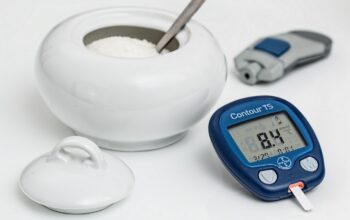Calcium supplements may increase the risk of dementia in older women who have suffered a stroke, according to new research.
The study suggests calcium supplements – taken to strengthen ageing bones – may be linked to an increased risk of dementia in older women who have previously had a stroke or shown other symptoms of cerebrovascular disease.
Cerebrovascular disease is a group of disorders that affect blood flow in the brain.
Study author Doctor Silke Kern, of the University of Gothenburg in Sweden, said: “Osteoporosis is a common problem in the elderly.
“Because calcium deficiency contributes to osteoporosis, daily calcium intake of 1000 to 1200 mg is recommended.
“Getting this recommended amount through diet alone can be difficult, so calcium supplements are widely used.
“Recently, however, the use of supplements and their effect on health has been questioned.”
The study was based on 700 dementia-free women, aged between 70 and 92, who were followed for five years.
The participants underwent a variety of tests at the start and end of the study, such as memory and thinking skills. A CT brain scan was performed on 447 participants at the start of the study.
Scientists also investigated calcium supplements use in the participants and whether they were diagnosed with dementia over the course of the study.
A total of 98 women were taking calcium supplements when the study was started and 54 women had already experienced a stroke. During the study, 54 more women had strokes, and 59 women developed dementia.
Among the women who had CT scans, 71 per cent of them had lesions on their brains’ white matter, which is a telltale sign of cerebrovascular disease.
The study, published by the Neurology journal, found that the women who were treated with calcium supplements were twice as likely to develop dementia than women who didn’t take supplements.
But when the researchers analysed the figures, they found only the women with cerebrovascular disease had the increased risk.
Women with a history of strokes and also took supplements had approximately their risk of developing dementia increased by seven, than women with a history of stroke who did not take calcium supplements.
Women with the white matter lesions who took supplements were found to be three times as likely to have dementia as women who had white matter lesions and weren’t taking the supplements.
Women without a history of stroke or women without white matter lesions had no increased risk when taking calcium supplements.
Overall, 14 out of 98 women who took supplements developed dementia, opposed to 45 out of 602 women who did not take supplements, (eight per cent).
Six out of 15 women with a history of stroke who took supplements actually developed dementia, compared to 12 out of 93 women with a history of stroke who did not take supplements.
Out of the women with no history of stroke, 18 out of 83 who took supplements developed dementia, compared to 33 out of the 509 who did not take supplements.
Dr Kern said: “It is important to note that our study is observational, so we cannot assume that calcium supplements cause dementia.”
He also remarked that the study was small and results cannot be applied to the overall population, and that additional studies are needed to confirm the findings.
But Dr Kern added that calcium from food affects the body differently than calcium from supplements and appears to be safe or even protective against vascular problems.




